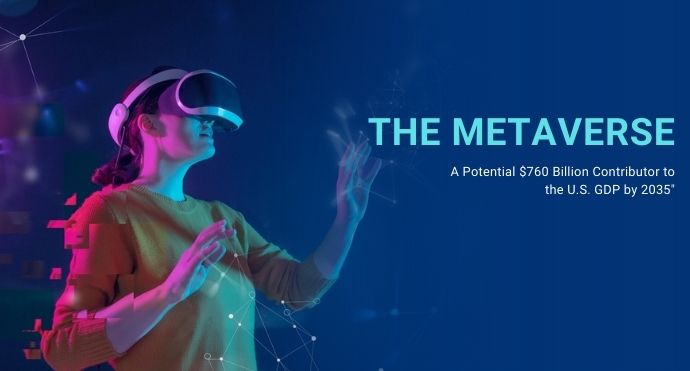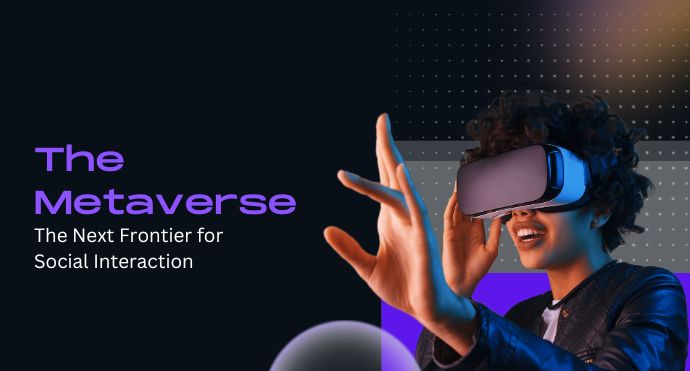The metaverse, a term that has been buzzing around the tech industry for a while now, could potentially contribute a staggering $760 billion, or about 2.4% to the U.S. annual gross domestic product (GDP) by 2035. This prediction comes from a study commissioned by Meta Platforms, the company formerly known as Facebook.
The metaverse is a concept that encompasses augmented and virtual reality technologies. It allows users to immerse themselves in a virtual world or overlay digital information on images of the real world. The potential of this technology is vast, with applications spanning across various sectors such as defense, medical, manufacturing, and entertainment, including video games and communication.
Despite the skepticism from investors about the returns on Meta’s large investments in its metaverse project, the company is steadfast in its belief that this technology will eventually replace mobile as the primary computing platform. The company’s pivot towards building metaverse technologies in 2021 is a testament to this belief.
To better visualize the potential economic impact of the metaverse, let’s take a look at a comparative table of the projected contributions to the GDP of the U.S., EU, and Canada by 2035:
| Region | Projected Contribution to GDP by 2035 |
| U.S. | $760 billion (2.4% of GDP) |
| EU | 489 billion euros (1.3%–2.4% of GDP) |
| Canada | C$45.3 billion – C$85.5 billion |
| Global | $3.01 trillion |
These figures are impressive, especially when considering that these are only three regions. The global economic impact could be even more substantial. According to a report commissioned by Meta to consulting firm Analysis Group last year, metaverse adoption could contribute a whopping $3.01 trillion globally by 2031.
It’s also interesting to note that these projections are not just about the entertainment sector. The metaverse’s potential applications span across various sectors such as defense, medical, and manufacturing. This wide range of applications is what makes the metaverse such an exciting prospect for the future.
The potential of the metaverse is enormous, and its economic impact could be significant. As we move towards a more digital future, the metaverse could play a crucial role in shaping our economy and society. However, it’s important to remember that these are just projections. The actual impact of the metaverse will depend on various factors, including technological advancements, user adoption, and regulatory frameworks. As such, it’s an exciting space to watch in the coming years.
Conclusion:
The metaverse represents a new frontier in technology, with the potential to significantly impact our economy and society. As we’ve seen, the projections for its economic contribution are substantial, with the potential to contribute billions, even trillions, to global GDP in the coming years.
However, it’s important to remember that these figures are projections. The actual impact of the metaverse will depend on a variety of factors, including technological advancements, user adoption rates, and regulatory environments. Despite the uncertainties, one thing is clear: the metaverse is an exciting space that is worth watching closely.
As we move forward, it will be interesting to see how the metaverse evolves and how businesses, governments, and individuals adapt to this new digital landscape. Whether it’s through virtual reality, augmented reality, or other yet-to-be-discovered technologies, the metaverse promises to open up new possibilities for interaction, communication, and commerce. The journey to this new frontier is just beginning, and it’s a journey that promises to be fascinating.



